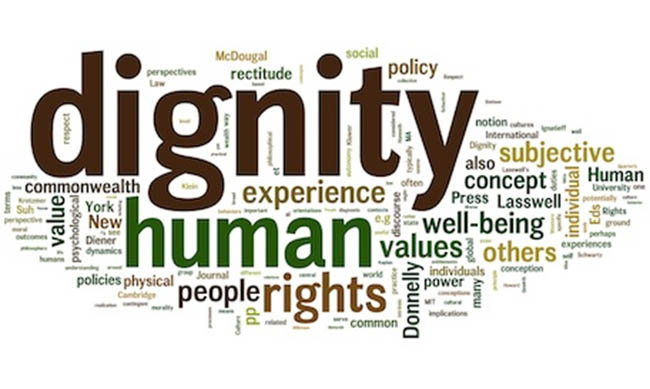AhlulBayt News Agency (ABNA): Human dignity is one of the most important concepts of Islam, which is considered one of the fundamental principles of the religion. Islam emphasizes the inherent dignity of every human being, regardless of race, gender, or religion, and this principle is clearly specified in the verse “وَلَقَدْ كَرَّمْنَا بَنِي آدَمَ” (Verily we have honored the Children of Adam) (Quran, 17: 70).
Human dignity in Islamic texts
The Holy Quran, as the only holy book of Muslims, attaches special importance to human dignity. “وَلَقَدْ كَرَّمْنَا بَنِي آدَمَ وَحَمَلْنَاهُمْ فِي الْبَرِّ وَالْبَحْرِ وَرَزَقْنَاهُمْ مِنَ الطَّيِّبَاتِ وَفَضَّلْنَاهُمْ عَلَى كَثِيرٍ مِمَّنْ خَلَقْنَا تَفْضِيلً” (Verily we have honoured the Children of Adam. We carry them on the land and the sea, and have made provision of good things for them, and have preferred them above many of those whom We created with a marked preferment.) (Quran, 17: 70).
This verse clearly states that God has honored all human beings and has given them dignity. It not only shows the importance of human dignity but also its application and generality, indicating that this dignity includes all human beings regardless of race and nationality and without any discrimination.
The AhlulBayt (a.s.) special attention to human dignity can be seen in the hadiths narrated from them. In a hadith, the Holy Prophet (p.b.u.h) said, “الناس سواسية كاسنان المشط” (People are equal to each other like the teeth of the comb.) This fine hadith affirms the equality of all human beings and emphasizes their inherent dignity.
A brief look at human dignity in the life of AhlulBayt (a.s.)
One of the famous historical stories is the conduct of Imam Ali (a.s.) with a black slave named Qanbar. This story is a clear example of Islam’s attention to human dignity, regardless of a person’s race or social status.
One day, Imam Ali (a.s.) encountered a black slave when he was passing through a place with his companions. One of Imam’s companions humiliated the slave. Imam Ali (a.s.) strongly dealt with this behavior and ordered his companions to respect Qanbar. Then Imam Ali (a.s.) invited him to his meal and had a conversation with him. This behavior of the Imam indicates the importance of human dignity in the daily conduct of Muslims, and that Islam ignores external differences and respects the inherent dignity of every human person.
Human dignity in Islamic jurisprudence
Islamic jurisprudence has also paid attention to human dignity and has established rules and laws that guarantee respect for human beings and preserve their dignity. In many jurisprudential fatwas, respect for human dignity, even in dealing with criminals and enemies, has been emphasized. Jurisprudence books, especially those that deal with the general principles and rules of jurisprudence, have comprehensively studied the issue of human dignity.
There are important topics and titles in Islamic jurisprudence that clearly depict the high status of human dignity.
Regarding individual rights, the respect of human life, property, honor, the right to freedom of speech, and the right to freedom of opinion are among the most important topics of our religion.
Also, regarding social rights, important topics such as social justice, fraternity and equality, cooperation and collaboration, rights of neighbors, and rights of prisoners and fighters can be seen.
Regarding political and economic rights, issues such as consultation with the people, free elections, minority rights, the prohibition of usury, the rights of workers, and helping the poor all indicate Islam’s special concern for human dignity.
In jurisprudence books such as Tahreer al-Wasila by the late Imam Khomeini (r.a.) and Al-Mughni by Ibn Qudama, issues such as the rights of captives, the treatment of slaves and even the rights of animals have been discussed, all of which emphasize the preservation of dignity and respect for living beings. All these show the breadth and depth of Islam’s view on humans’ and even animals’ dignity.
The directive to uphold human dignity in everyday conduct and Islamic jurisprudence illustrates that Islam profoundly honors and appreciates every individual. Applying this principle can contribute to developing a just society, enjoying peace and security.
**************
End/ 345

